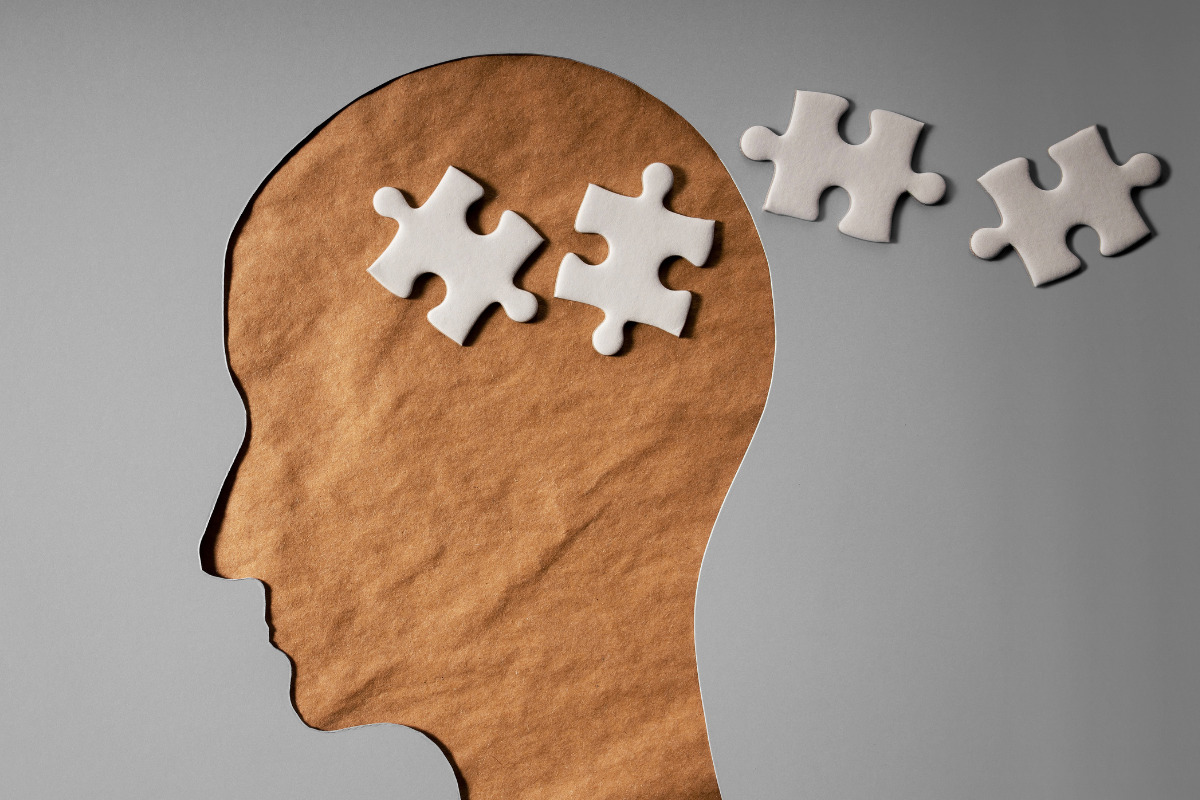Vitamin D for Brain Health

Getting older is inevitable. That said, we do have some control over how we age – especially when it comes to nutrition. Unfortunately, there have been few studies about how food and nutrients impact brain health until now.
Dementia Cases Will Increase Sixfold by 2025

According to a 2022 study, more than 150 million people worldwide will have dementia by 2050. This is up 57 million from 2019. That’s a significant increase, which has major implications for women. Currently, two-thirds of Alzheimer’s patients are women. The reasons are not entirely known, but menopause has been shown to be an important period for women’s brain health. In fact, several studies have shown that women who experience early menopause before age 45 have a higher risk of dementia later in life.
What’s the difference between dementia and Alzheimer’s These terms are often used unchangeably, but they are two different things. Dementia is a general term that describes a range of symptoms, while Alzheimer’s is a specific brain disease. Alzheimer’s is a complex brain change that occurs with cell damage and accounts for 60-80% of dementia cases. Dementia, on the other hand, is a mental ability decline that interferes with daily life. The symptoms of dementia include a decline in memory and difficulty with communicating, reasoning, or other cognitive skills.
The Vitamin D – Brain Health Connection

Vitamin D is a ‘must have’ nutrient in menopause. It’s been proven to strengthen our immune systems and support bone and muscle health in older adults. A recently published 2022 UK Study that followed 3,200 people over four years showed that people deficient in Vitamin D were more than 70% more likely to develop weakness and atrophy in muscles as they aged compared to people that had sufficient Vitamin D. Vitamin D is also known to have anti-inflammatory, antioxidant, and neuroprotective properties, according to the Mayo Clinic.
Researchers at Tuft’s recently published the results of a first-ever study examining levels of Vitamin D in brain tissue. It’s worth noting this was the first time Vitamin D levels had ever been studied in human brain tissue. Tuft’s study examined brain tissue samples from 290 Rush Memory and Aging Project participants. This is a long-term study that began in 1997 with respondents who were willing to donate their brains to the research after death. Researchers found that higher levels of vitamin D in all four regions of the brain were associated with 25% to 33% lower odds of dementia. Higher Vitamin D levels also supported better cognitive function, a stronger memory, and a slower progression of cognitive decline.
“This research reinforces the importance of studying how food and nutrients create resilience to protect the aging brain against diseases such as Alzheimer’s disease and other related dementias.”
SARAH BOOTH, PH.D., STUDY CO-AUTHOR AND DIRECTOR OF THE JEAN MAYER USDA HUMAN NUTRITION CENTER ON AGING AT TUFT’S UNIVERSITY
It’s important to note that the study itself did not conclusively prove that Vitamin D on its own protects against dementia. Also, if it does protect against dementia, it’s not clear how. Vitamin D levels are also known to vary amongst racial and ethnic populations, and most of the subjects were Caucasian. More follow-up studies are being planned amongst ethnically diverse populations to ensure a more comprehensive understanding.
That said, this is a promising area of investigation. It also complements other ongoing studies in this area, such as the Alzheimer’s Association’s U.S. POINTER study, which is testing whether a combination of lifestyle measures — including healthy eating and exercise — can preserve cognitive function in older adults who are at increased risk of decline.
Sources of Vitamin D

It’s easy to add Vitamin D to your diet. The three main sources of Vitamin D are:
- Sun exposure – which causes the body to produce Vitamin D naturally
- Food – certain fish like salmon, trout, and tuna, orange juice or fortified milk and cereals
- Natural Supplements – can help supplement the body’s Vitamin D levels
Experts caution that too much Vitamin D can cause toxicity and other side effects, including nausea, vomiting, weakness, and frequent urination. The recommended dietary allowance for adults 19 and older is 600 IU (15mcg) daily or 800 IU (20mcg) for those 70 and older. Be sure to consult your healthcare professional before starting a new dietary regimen.
Learn more about Vitamin D In the Midday app, where Stanford University menopause expert Dr. Amy Shu shares her top tips.
Looking for more expert support for brain health? Download Midday from the App Store or visit us at Midday.Health
Sign up for more unique women’s health content
By submitting this form, you agree to the Lisa Health Privacy Policy and Terms of Use


